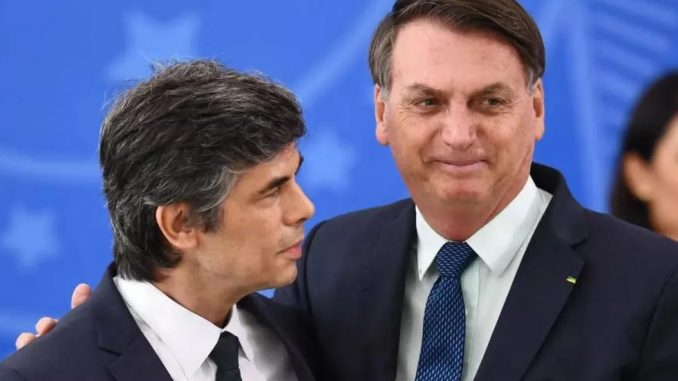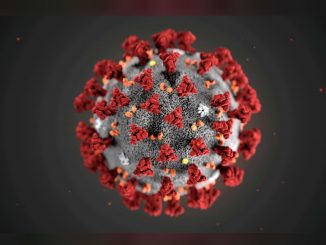
Brazil’s health minister resigned on Friday after less than a month on the job in a sign of continuing upheaval in the nation’s battle with the COVID-19 pandemic and President Jair Bolsonaro’s pressure for the nation to prioritize the economy over health-driven lockdowns.
Nelson Teich’s resignation was confirmed by the Health Ministry. The oncologist, a former health care consultant, took the job on April 17 under pressure to align the ministry’s actions with the president’s view that the economy must not be destroyed by restrictions to control spread of the virus.
Officials say that more than 13,000 people have died of COVID-19 in Brazil, though some experts say the figure is significantly higher due to insufficient testing, and analysts say the peak of the crisis has yet to hit Latin America’s largest nation.
ALSO READ: COVID-19: Stranded Nigerians protest govt directive to pay N297,600 for 16-day quarantine
Teich’s number two, Gen. Eduardo Pazuello, who had no health experience until joining the ministry in April, will be the interim minister until Bolsonaro chooses a permanent replacement
Teich’s resignation comes one day after Bolsonaro told business leaders in a video conference he would ease rules for use of an antimalaria drug to treat people infected with the coronavirus. The outgoing health minister has frequently called the use of chloroquine “an uncertainty” in the fight against the virus, and this week warned of its side effects.
The Health Ministry previously allowed the use of chloroquine only for coronavirus patients hospitalized in serious condition.
At Bolsonaro’s urging, the country’s Army Chemical and Pharmaceutical Laboratory boosted chloroquine production in late March.
The antimalarial drug was widely touted by U.S. President Donald Trump as a treatment. But researchers last month reported no benefit in a large analysis of the drug or a related substance, hydroxychloroquine, in U.S. hospitals for veterans. Last month, scientists in Brazil stopped part of a study of chloroquine after heart rhythm problems developed in one quarter of people given the higher of two doses being tested.
Governors who have taken a more cautious road than Bolsonaro’s during the pandemic praised Teich’s efforts.
Rio de Janeiro Gov. Wilson Witzel, a former ally of Bolsonaro, said “no one can do serious work with interference in ministries and in the federal police.”
“That is why governors and mayors need to lead the pandemic crisis, and not you, Mr President,” Witzel said on Twitter.
The governor of Ceara, one of Brazil’s most hard-hit states, said Teich’s exit “brings enormous insecurity and concern.”
“It is unacceptable that before this serious health crisis that we face, the focus of the government is still on political and ideological discussions. That is an affront to the nation,” Camilo Santana said.
Bolsonaro fired Teich’s predecessor, Luiz Henrique Mandetta, on Apr.16 after disagreements over efforts to contain the new coronavirus. The president opposed governor’s quarantine recommendations and restrictions on business and was eager to resume economic activity, and warned failure to do so would cause Brazil to descend into “chaos”.
Mandetta was one of Brazil’s most popular ministers. He sided with governors’ stay-at-home measures and became the embodiment of challenges to Bolsonaro’s position. Teich took office pledging to balance health care concerns and the president’s economic worries.
Miguel Lago, executive director of Brazil’s non-profit Institute for Health Policy Studies, which advises public health officials, said Teich wasn’t able to build his own team, didn’t have Mandetta’s political strength and wasn’t willing to violate the scientific recommendations.
“He clearly had limitations,” Lago said. “He would not challenge what has been consensus among the scientific community. He would never accept the chloroquine thing that Bolsonaro wanted him to do, to recommend publicly that chloroquine was a remedy to be used in the public health system.”
After Teich’s resignation was announced, pot-banging protests were heard in different regions of Sao Paulo and Rio de Janeiro.
AFP




